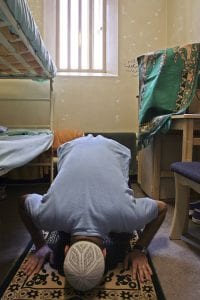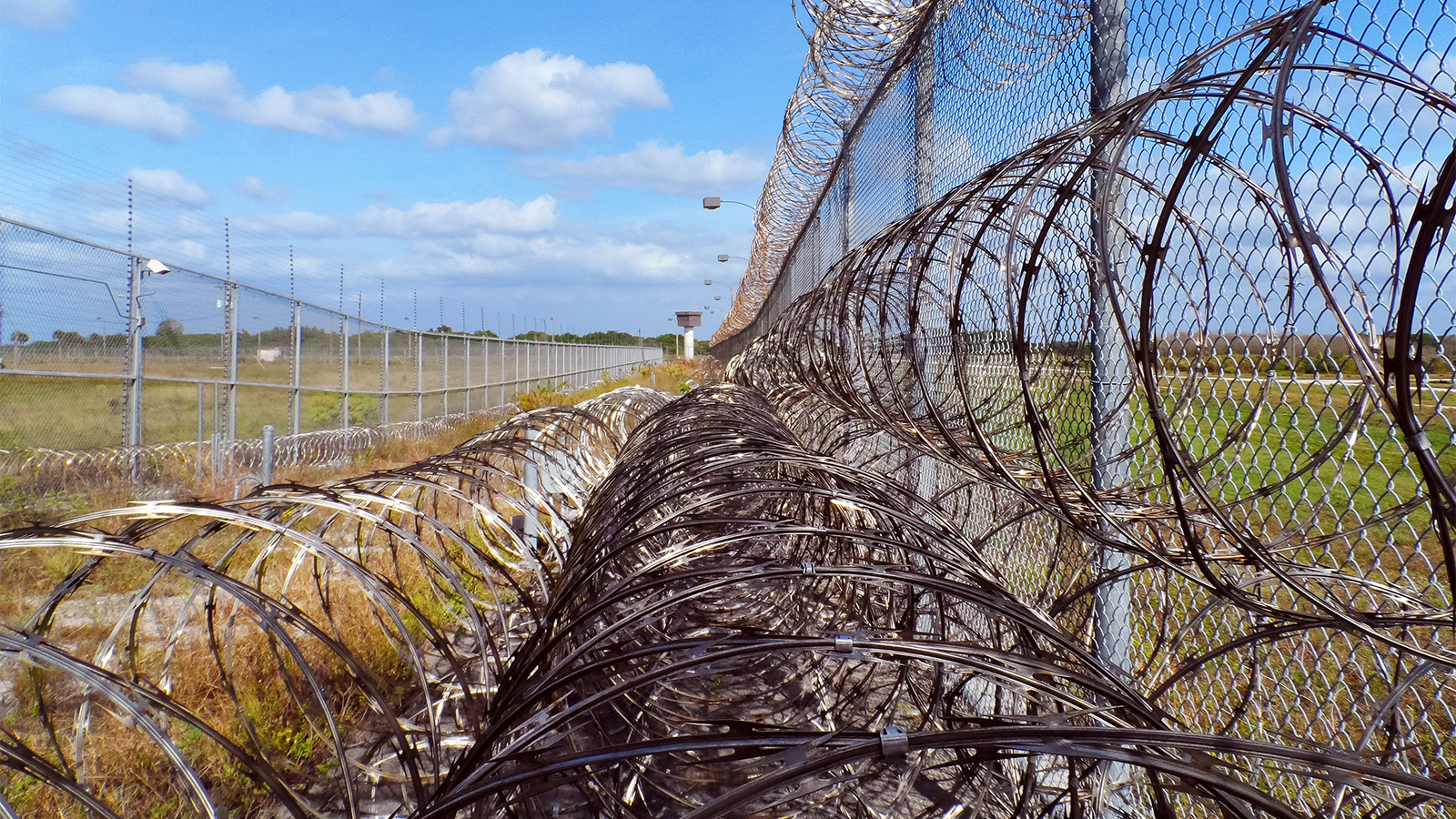(RNS) — The Federal Bureau of Prisons has issued new national guidelines recommending accommodation of group prayer for Muslim prisoners after an inmate’s lawsuit challenging restrictions at a Kentucky prison.
The agency has recommended that all federal prisons should accommodate inmates’ requests for Muslim congregational prayer services unless there is a security concern, after the civil rights organization Muslim Advocates appealed a court decision upholding a federal prison’s right to limit such services to three people.
You may unsubscribe from any of our newsletters at any time.
“This new group prayer guidance sends a clear signal to all prisons that the right to pray should not be denied, regardless of faith,” said Matt Callahan, staff attorney for Muslim Advocates. “Unfortunately, we believe many of the 142 federal prisons are likely ignoring their obligation to ensure the right to pray at their facilities.”
More on Broadview: Why some Muslim women take off the hijab
Last year, Muslim inmate William Doyle sued United States Penitentiary McCreary, a high-security federal prison for male inmates in Kentucky, for restricting congregational prayer to groups of three prisoners or fewer and requiring these groups to request staff permission before praying.
Doyle claimed this policy was only enforced against Muslims and that the prison allowed other, nonreligious activities in larger groups. The district court dismissed Doyle’s suit, which claimed religious freedom violations by the prison.
After Muslim Advocates represented Doyle in his March appeal of the district court’s decision, the prison revoked its policy.

According to Muslim Advocates, the Bureau of Prisons also revised its recommendations on Muslim group prayer, which are sent to all federal prisons in its Religious Beliefs and Practices manual.
The new guidelines replace previous recommendations limiting group prayer to two or three inmates, which McCreary had been following.
Instead, the agency said, inmates’ requests for group prayer should be handled just like all requests for group activities: Staff should accommodate all group prayer requests unless they would jeopardize the facility’s security or order.
The agency said it aims to accommodate inmates of all faith groups with “reasonable and equitable” opportunities for religious services and access to religious resources.
To accomplish that, the bureau “continually evaluates and updates our policies, procedures, and guidelines to support the changing needs of inmates, while also ensuring our institutions are safe, humane and appropriately secure,” Bureau of Prisons official Emery Nelson told RNS.
Muslim Advocates called the previous restrictions on group prayer “an insult to religious freedom” and urged all federal prisons to immediately adopt the new policies outlined by the bureau.
Most Muslims believe they are obligated to perform five daily prayers at specific times throughout the day, depending on the position of the sun. Whenever possible, if other Muslims are present, these prayers should be done in congregations behind an imam. During the weekly Friday prayer service, known as jumah, the element of community is particularly sacred.
The ability to worship in groups ranks among the most commonly litigated concerns facing Muslim prisoners. Muslim Advocates’ analysis of recent free-exercise lawsuits filed in federal court by incarcerated Muslims, published in July as part of a major report on the Muslim population in state prisons, found that 57 of 163 cases dealt with restrictions on the ability to pray or worship.
The report urged state correctional departments to enact policies that facilitate group prayer in dormitories, work sites and recreation yards, and to avoid bans on group prayer in favour of narrowly tailored restrictions on unit or individual security designation and documented history.
The Bureau of Prisons’s move comes days after an appeals court rejected a ruling by a lower court that allowed a Virginia state prison to prevent Sufi Muslim prisoner Alfonza Greenhill from growing a beard and from participating in congregational prayer sessions on Friday via CCTV while he was in solitary confinement.
“The free exercise of religion is a right, not a bargaining chip for prisons to offer as an incentive for good behaviour,” said Callahan, who filed an amicus brief with Muslim Advocates in the case along with the Reconstructionist Rabbinical Association and Interfaith Alliance Foundation.














